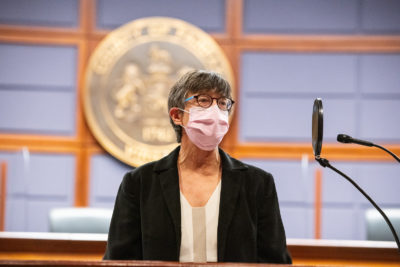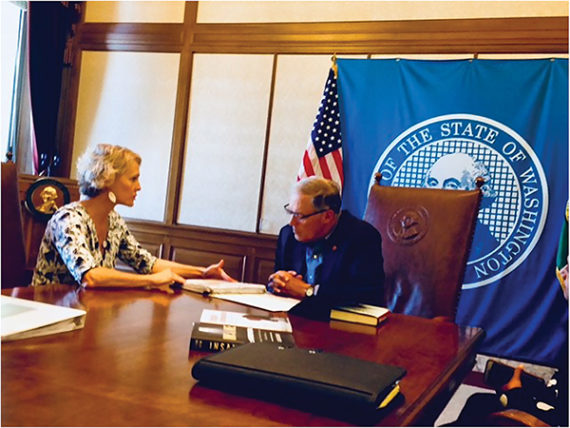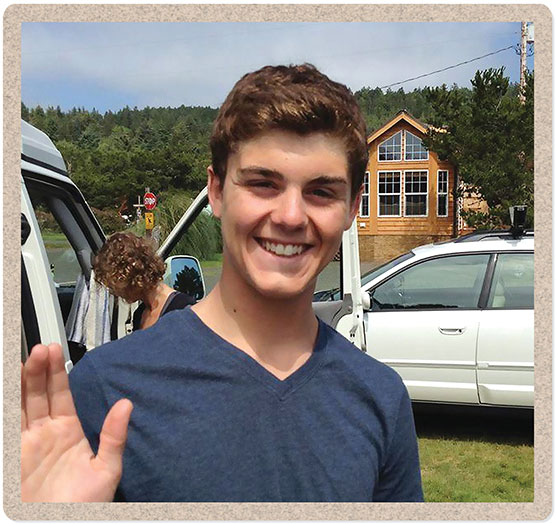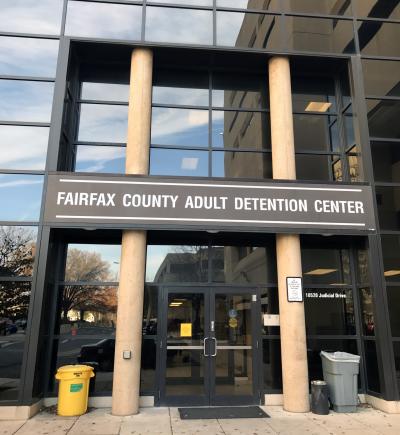
Judge Tina Snee of the Fairfax County General District Court. “Graduation” for defendants who successfully completed requirements on the Fairfax County Mental Health Docket.
(12-1-21) I am delighted that the Fairfax County Board of Supervisors is continuing to focus on decriminalizing mental illnesses and treating substance abuse.
Earlier this month, General District Court Judge Tina L. Snee held yet another graduation ceremony for individuals who’d completed requirements set through her mental health docket. (In Virginia, there are no mental health courts, only dockets.) Judge Snee has been a champion in overseeing this important tool in our county’s jail diversion efforts. Circuit Court Chief Justice Penney S. Azcarate first opened the door by establishing a veterans’ docket. Both should be commended.
Jeffrey C. McKay, chair of the Board of Supervisors, recently highlighted other steps the country is taking to improve mental health and substance abuse services. (See below) McKay has done a masterful job in building on a foundation that his predecessors, Chair Sharon Bulova and Supervisor John C. Cook, established.
Not surprisingly, Sheriff Stacey A. Kincaid continues to be a driving force in pushing the county forward. She was a crucial in launching the county’s Diversion First program, is nationally recognized as a proponent of the Stepping Up Initiative, and has implemented dozens of meaningful changes at the adult detention center, such as offering tele-psychiatry services in the jail. She changed the jail’s long standing policy of releasing inmates at 12:01 a.m., shifting discharge to 8 a.m., a time when transportation, shelter, medical care and other community resources are more readily available. Since 2016, she has invited NAMI support groups into the jail six times a year. She routinely talks to parents and spouses who are concerned about an incarcerated loved one with a mental illness and/or substance abuse problem.
Those of us who live in Fairfax County should be grateful for Chair McKay, the board, Judges Snee and Azcarate, the CSB’s Daryl Washington, and especially Sheriff Kincaid.
Now, if we can only do something about securing affordable housing and increasing access to treatment beds.







